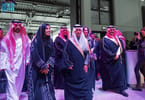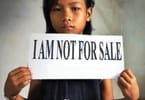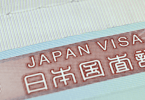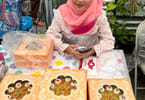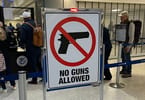Asia is still reluctant to promote itself to the gay market, including gay-friendly Thailand, while the United States, Australia, South Africa and Europe have now for over a decade targeted gay travelers as a potential market generating a lot of revenues and positive exposure for a country or a city. In Europe, the success of the annual Europride testifies of the importance taken by the hosting of a gay event. In 2007, Madrid welcomed over two million travelers during the Europride hosting, a record in the event’s history.
As more countries recognize the power of the pink tourist dollar, gay tourism remains largely ignored from Asian countries. Most of the time, market experts estimate that Asia’s reluctance hangs more to traditions than true hostility to gay tourism.
“Asian societies are rather conservative and a large share of the population still relies on traditional values. Images of openly gay clubs in Bangkok or transvestites performance shows do not reflect the real feeling of locals,” explained Juttaporn Rerngronasa, deputy governor for Marketing Communication at the Tourism Authority of Thailand (TAT).
In predominantly Muslim Indonesia and Malaysia, being gay is still considered as a sin. However, it has not hindered a fairly lively gay scene to flourish in Jakarta, Kuala Lumpur and Bali.
The message to gay tourist communities remains “subliminal” in Asia. Although many countries have today a more open attitude to gay travelers, marketing to gay crowds remains largely into private hands. Taiwan’s hosting of the first large pride parade of the Chinese world in 2003 turned it into the gay-friendliest destination in Northeast Asia. Gay hotels and travel agencies have also recently flourished in Cambodia.
“We do not face any hassle from the Government as they understand that targeting the gay traveler market is a way among others to boost tourism to the country,” said Punnavit Hantitipart, Sales and Marketing Manager for the Golden Banana Boutique Hotel in Siem Reap in Cambodia.
A few years ago, under the leadership of Prime Minister Goh Chok Tong, Singapore adopted a more liberal attitude to gays. Clubs and gay-oriented business opened around the Tanjong Pagar area. The annual Nation Party, hosted on Singapore’s National Day, became even an economic event, attracting some 2,500 visitors and generating some S$6 (US$4+) million. The opening up of Singapore to a more gay culture was also part of the government’s strategy to transform the city into a vibrant cosmopolitan open-minded community.
However, since PM Lee Hsien Loong has taken over the destiny of Singapore, gay-friendly Singapore has been back to a more sober and moral-driven mood. But Singapore Tourism Board (STB)’s campaign “Uniquely Singapore”-launched in 2005- continues to promote activities such as musicals or art events which are appealing to a gay audience.
Muhammad Rostam Umar, director of Communications for the Singapore Tourism Board, said: “The STB welcomes everyone to Singapore. In marketing Singapore as a destination, we target specific customer segments that include, among others, leisure travelers, business travelers and MICE visitors, as well as those seeking education and health care services. The tourism products that we develop and offer to visitors are geared towards these segments. Many of these tourism products, especially the lifestyle products that range from shopping to dining and events to entertainment, appeal to a broad audience as well. We are confident that any individual will find something appealing to his or her interests any time he or she visits Singapore.”
Thailand is a more interesting case. In 2007, Bangkok was considered by Lonely Planet’s Blue List as one of the ten hottest spots for gays in the world. So far, the Bangkok is the only city in Asia to have received such a distinction. However, TAT still keeps a low profile in the gay market promotion, even if TAT acknowledges the economic benefits brought by gay tourism in the Kingdom, according to Juttaporn Rerngronasa. But so far, no official study has been done by tourism authorities to assess the gay market.
TAT is even not ready to promote officially Thailand to this market. “This is not our policy; however, it does not mean that we are hostile to the gay market or do not welcome gay travelers. We always respond positively to request from gay groups or associations to organise a stay in Thailand by providing them all information on hotels or activities or even helping them to find the right partner. But we prefer to keep a neutral position as we are a government’s institution and let the private sector step in,” added Rerngronasa.
A prudish view that understands Punnavit Hantipapart from the Golden Banana Hotel: “Many fears that doing the promotion of the gay market might attract undesirable tourists looking only for sex. And it will damage then the country’s image,” he explains. This is indeed the major issue. Obviously by not treating gay tourism like any other niche market, TAT and other Asian Nation Tourist Organizations unconsciously underline that gay tourism is still a matter of immorality.
But TAT’s distant behavior versus the gay market does not seem to please everyone within the organization. Some of TAT staff unofficially voiced even their disapproval about the way the gay market is handled. “We should seriously study the gay market and be more pro-active as gay travelers represent a high-spending, well-educated niche market for us,” said a TAT employee, who spoke under condition of anonymity. Everyone at TAT is prompt to recognize that TAT governor is the only one to impulse a new official policy for promoting Thailand to gay travelers and to look for the government’s support. It would indeed be a major and positive evolution as TAT would officially endorse gay tourism in the same way that it endorses already senior travel or medical tourism. So far, this is not the case.
WHAT TO TAKE AWAY FROM THIS ARTICLE:
- Asia is still reluctant to promote itself to the gay market, including gay-friendly Thailand, while the United States, Australia, South Africa and Europe have now for over a decade targeted gay travelers as a potential market generating a lot of revenues and positive exposure for a country or a city.
- “We do not face any hassle from the Government as they understand that targeting the gay traveler market is a way among others to boost tourism to the country,” said Punnavit Hantitipart, Sales and Marketing Manager for the Golden Banana Boutique Hotel in Siem Reap in Cambodia.
- However, TAT still keeps a low profile in the gay market promotion, even if TAT acknowledges the economic benefits brought by gay tourism in the Kingdom, according to Juttaporn Rerngronasa.












